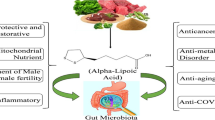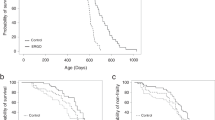Abstract
Massive evidence shows that intestinal tryptophan metabolites affected by intestinal flora can modulate the progression of rheumatoid arthritis (RA). However, the effects and mechanisms of intestinal tryptophan metabolites on RA are not yet detailed. Herein, we investigated the protective effects of intestinal tryptophan metabolites on RA and its detailed mechanisms. In this study, the collagen-induced arthritis (CIA) rat model was established. Based on metabolomics analysis, the contents of β-indole-3-acetic acid (IAA), indolylpropionic acid, and indole-3-β-acrylic acid in the sera of CIA rats were significantly less compared with those of the normal rats. Under the condition of Treg or Th17 cell differentiation, IAA significantly promoted the differentiation and activation of Treg cells instead of Th17 cells. Intestinal tryptophan metabolites are well-known endogenic ligands of aryl hydrocarbon receptor (AhR). Not surprisingly, IAA increased the level of Foxp3 through activating the AhR pathway. Interestingly, IAA had little impact on the level of Foxp3 mRNA, but reducing the ubiquitination and degradation of Foxp3. Mechanically, IAA reduced the expression of the transcriptional coactivator TAZ, which was almost completely reversed by either AhR antagonist CH223191 or siRNA. In vitro, IAA decreased the combination of TAZ and the histone acetyltransferase Tip60, while it increased the combination of Tip60 and Foxp3. In CIA rats, oral administration of IAA increased the number of Treg cells and relieved the inflammation. A combined use with CH223191 almost abolished the effect of IAA. Taken together, IAA attenuated CIA by promoting the differentiation of Treg cells through reducing the ubiquitination of Foxp3 via the AhR-TAZ-Tip60 pathway.







Similar content being viewed by others
Data availability
No datasets were generated or analysed during the current study.
References
Huang J, Fu X, Chen X, Li Z, Huang Y, Liang C. Promising therapeutic targets for treatment of rheumatoid arthritis [J]. Front Immunol. 2021;12:686155. https://doi.org/10.3389/fimmu.2021.686155.
Zhang X, Wang B, Chen S, Fu Y. Protective effects of Typhonii Rhizoma in rheumatoid arthritis rats revealed by integrated metabolomics and network pharmacology [J]. Biomed Chromatogr. 2023;37(9):e5683. https://doi.org/10.1002/bmc.5683.
Yu D, Du J, Pu X, Zheng L, Chen S, Wang N, Li J, Chen S, Pan S, Shen B. The gut microbiome and metabolites are altered and interrelated in patients with rheumatoid arthritis [J]. Front Cell Infect Microbiol. 2021;11:763507. https://doi.org/10.3389/fcimb.2021.763507.
Mellor AL, Munn DH. IDO expression by dendritic cells: tolerance and tryptophan catabolism [J]. Nat Rev Immunol. 2004;4(10):762–74. https://doi.org/10.1038/nri1457.
Cherayil BJ. Indoleamine 2,3-dioxygenase in intestinal immunity and inflammation [J]. Inflamm Bowel Dis. 2009;15(9):1391–6. https://doi.org/10.1002/ibd.20910.
Gao J, Xu K, Liu H, Liu G, Bai M, Peng C, Li T, Yin Y. Impact of the gut microbiota on intestinal immunity mediated by tryptophan metabolism [J]. Front Cell Infect Microbiol. 2018;8:13. https://doi.org/10.3389/fcimb.2018.00013.
Ala M. Tryptophan metabolites modulate inflammatory bowel disease and colorectal cancer by affecting immune system [J]. Int Rev Immunol. 2022;41(3):326–45. https://doi.org/10.1080/08830185.2021.1954638.
Gutiérrez-Vázquez C, Quintana FJ. Regulation of the immune response by the aryl hydrocarbon receptor [J]. Immunity. 2018;48(1):19–33. https://doi.org/10.1016/j.immuni.2017.12.012.
Hezaveh K, Shinde RS, Klötgen A, Halaby MJ, Lamorte S, Ciudad MT, Quevedo R, Neufeld L, Liu ZQ, Jin R, Grünwald BT, Foerster EG, Chaharlangi D, Guo M, Makhijani P, Zhang X, Pugh TJ, Pinto DM, Co IL, McGuigan AP, Jang GH, Khokha R, Ohashi PS, O’Kane GM, Gallinger S, Navarre WW, Maughan H, Philpott DJ, Brooks DG, McGaha TL. Tryptophan-derived microbial metabolites activate the aryl hydrocarbon receptor in tumor-associated macrophages to suppress anti-tumor immunity [J]. Immunity. 2022;55(2):324-340.e328. https://doi.org/10.1016/j.immuni.2022.01.006.
Teng Y, Ren Y, Sayed M, Hu X, Lei C, Kumar A, Hutchins E, Mu J, Deng Z, Luo C, Sundaram K, Sriwastva MK, Zhang L, Hsieh M, Reiman R, Haribabu B, Yan J, Jala VR, Miller DM, Van Keuren-Jensen K, Merchant ML, McClain CJ, Park JW, Egilmez NK, Zhang HG. Plant-derived exosomal microRNAs shape the gut microbiota [J]. Cell Host Microbe. 2018;24(5):637-652.e638. https://doi.org/10.1016/j.chom.2018.10.001.
Aoki R, Aoki-Yoshida A, Suzuki C, Takayama Y. Indole-3-pyruvic acid, an aryl hydrocarbon receptor activator, suppresses experimental colitis in mice [J]. J Immunol. 2018;201(12):3683–93. https://doi.org/10.4049/jimmunol.1701734.
Kim K, Kim H, Sung G Y. Effects of indole-3-lactic acid, a metabolite of tryptophan, on IL-4 and IL-13-induced human skin-equivalent atopic dermatitis models [J]. Int J Mol Sci. 2022 23(21). https://doi.org/10.3390/ijms232113520
Xu X, Wang M, Wang Z, Chen Q, Chen X, Xu Y, Dai M, Wu B, Li Y. The bridge of the gut-joint axis: gut microbial metabolites in rheumatoid arthritis [J]. Front Immunol. 2022;13:1007610. https://doi.org/10.3389/fimmu.2022.1007610.
Wang W, Xiang T, Yang Y, Wang Z, Xie J. E3 ubiquitin ligases STUB1/CHIP contributes to the Th17/Treg imbalance via the ubiquitination of aryl hydrocarbon receptor in rheumatoid arthritis [J]. Clin Exp Immunol. 2022;209(3):280–90. https://doi.org/10.1093/cei/uxac072.
Cheng L, Qian L, Tan Y, Wang GS, Li XM, Li XP, Luo CY. Unbalanced expression of aryl hydrocarbon receptor in peripheral blood CCR6(+)CD4(+) and CD4(+)CD25(+)T cells of rheumatoid arthritis [J]. Rev Bras Reumatol Engl Ed. 2017;57(3):190–6. https://doi.org/10.1016/j.rbre.2016.07.002.
Seymour B J, Trent B, Allen B E, Berlinberg A J, Tangchittsumran J, Jubair W K, Chriswell M E, Liu S, Ornelas A, Stahly A, Alexeev E E, Dowdell A S, Sneed S L, Fechtner S, Kofonow J M, Robertson C E, Dillon S M, Wilson C C, Anthony R M, Frank D N, Colgan S P, Kuhn K A. Microbiota-dependent indole production stimulates the development of collagen-induced arthritis in mice [J]. J Clin Invest. 2023. https://doi.org/10.1172/jci167671
Jiang ZM, Zeng SL, Huang TQ, Lin Y, Wang FF, Gao XJ, Li J, Li P, Liu EH. Sinomenine ameliorates rheumatoid arthritis by modulating tryptophan metabolism and activating aryl hydrocarbon receptor via gut microbiota regulation [J]. Sci Bull (Beijing). 2023;68(14):1540–55. https://doi.org/10.1016/j.scib.2023.06.027.
Yue M, Tao Y, Fang Y, Lian X, Zhang Q, Xia Y, Wei Z, Dai Y. The gut microbiota modulator berberine ameliorates collagen-induced arthritis in rats by facilitating the generation of butyrate and adjusting the intestinal hypoxia and nitrate supply [J]. Faseb j. 2019;33(11):12311–23. https://doi.org/10.1096/fj.201900425RR.
Geng J, Yu S, Zhao H, Sun X, Li X, Wang P, Xiong X, Hong L, Xie C, Gao J, Shi Y, Peng J, Johnson RL, Xiao N, Lu L, Han J, Zhou D, Chen L. The transcriptional coactivator TAZ regulates reciprocal differentiation of T(H)17 cells and T(reg) cells [J]. Nat Immunol. 2017;18(7):800–12. https://doi.org/10.1038/ni.3748.
Cheng X, Pi Z, Zheng Z, Liu S, Song F, Liu Z. Combined 16S rRNA gene sequencing and metabolomics to investigate the protective effects of Wu-tou decoction on rheumatoid arthritis in rats [J]. J Chromatogr B Analyt Technol Biomed Life Sci. 2022;1199:123249. https://doi.org/10.1016/j.jchromb.2022.123249.
Stoll ML, Kumar R, Lefkowitz EJ, Cron RQ, Morrow CD, Barnes S. Fecal metabolomics in pediatric spondyloarthritis implicate decreased metabolic diversity and altered tryptophan metabolism as pathogenic factors [J]. Genes Immun. 2016;17(7):400–5. https://doi.org/10.1038/gene.2016.38.
Carter NA, Vasconcellos R, Rosser EC, Tulone C, Muñoz-Suano A, Kamanaka M, Ehrenstein MR, Flavell RA, Mauri C. Mice lacking endogenous IL-10-producing regulatory B cells develop exacerbated disease and present with an increased frequency of Th1/Th17 but a decrease in regulatory T cells [J]. J Immunol. 2011;186(10):5569–79. https://doi.org/10.4049/jimmunol.1100284.
Huang T, Cheng L, Jiang Y, Zhang L, Qian L. Indole-3-pyruvic acid alleviates rheumatoid arthritis via the aryl hydrocarbon receptor pathway [J]. Ann Transl Med. 2023;11(5):213. https://doi.org/10.21037/atm-23-1074.
Tong Y, Marion T, Schett G, Luo Y, Liu Y. Microbiota and metabolites in rheumatic diseases [J]. Autoimmun Rev. 2020;19(8):102530. https://doi.org/10.1016/j.autrev.2020.102530.
Nicastro R, Raucci S, Michel AH, Stumpe M, Garcia Osuna GM, Jaquenoud M, Kornmann B, De Virgilio C. Indole-3-acetic acid is a physiological inhibitor of TORC1 in yeast. PLoS Genet. 2021;17(3):e1009414. https://doi.org/10.1371/journal.pgen.1009414.
Funding
This study was supported by the National Natural Science Foundation of China (81903883), the Colleges and Universities in Hebei Province Science and Technology Research Project (BJK2022014), and the Natural Science Foundation of Hebei Province (H2023423121).
Author information
Authors and Affiliations
Contributions
All authors contributed to the study conception and design. Material preparation, data collection, and analysis were performed by XRS, XLW, XZ, and YJS. The first draft of the manuscript was written by XRS and YGJ. All authors commented on previous versions of the manuscript. All authors read and approved the final manuscript.
Corresponding author
Ethics declarations
Ethical approval
This article does not contain any studies with human participants by any of the authors. In this experiment, we did not collect any samples of human. The animals used in this paper were conducted under the guidelines of current ethical regulations for institutional animal care and use at Hebei University of Traditional Chinese Medicine (animal ethics was reviewed by the Experimental Animal Welfare Ethics Committee of Hebei University of Chinese Medicine, with ethical number DWLL202202009).
Competing interest
The authors declare no competing interests.
Additional information
Publisher's Note
Springer Nature remains neutral with regard to jurisdictional claims in published maps and institutional affiliations.
Supplementary Information
Below is the link to the electronic supplementary material.
Rights and permissions
Springer Nature or its licensor (e.g. a society or other partner) holds exclusive rights to this article under a publishing agreement with the author(s) or other rightsholder(s); author self-archiving of the accepted manuscript version of this article is solely governed by the terms of such publishing agreement and applicable law.
About this article
Cite this article
Su, X., Wang, X., Zhang, X. et al. β-Indole-3-acetic acid attenuated collagen-induced arthritis through reducing the ubiquitination of Foxp3 via the AhR-TAZ-Tip60 pathway. Immunol Res (2024). https://doi.org/10.1007/s12026-024-09480-x
Received:
Accepted:
Published:
DOI: https://doi.org/10.1007/s12026-024-09480-x




